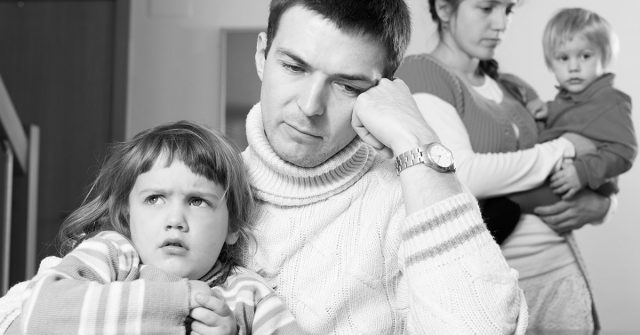Sometimes, regardless of all the efforts made to keep a marriage happy and safe, a relationship can turn toxic. It can get into a state that can cause significant emotional and mental damage to children.
Divorced parents may have been frowned upon 60 or 70 years ago, but nowadays, divorce is becoming more and more common. For example, in the United States, almost half of all marriages end in divorce now.
Nevertheless, people are still concerned about the negative impact divorce may have on children. So, in order to protect their kids from emotional pain and keep their family together, many married couples choose to stay together.
Children that are forced to endure unhealthy and loveless marriages and to put up with emotional tension and arguments bear the burden of their parents’ unhappiness, indifference, and lack of intimacy on their own shoulders.
So, while there’s no doubt that going through a divorce is difficult, especially for the children, trying to raise your kids in a despondent, abusive, and toxic home environment is way more dangerous for them.
Here are 4 ways children suffer through unhealthy and unhappy marriages:
1. Constant Tension
Children feel and internalize everything that’s going on between their parents. When parents are constantly fighting and disrespecting one another, children internalize those arguments and negative feelings. Instead of feeling comforted and carefree when they’re with both their parents, they feel stressed out and tense.
Such constant tension can be the trigger of serious emotional, physical, and social conditions in kids, such as anxiety, depression, or chronic fatigue.
2. An Unstable Sense of Self
In addition, this incessant conflict between parents eventually roots itself inside kids’ minds. It reduces their confidence, sucks all the positive energy out of them, and leaves them at the end with little or no internal peace at all.
For instance, the need to be loved is present, but they reject closeness. And instead of fulfilling their true potential and using their intellectual capacities, they sabotage their efforts.
3. Fear of Intimacy
Marriage is the first example of love and support children see and the way parents treat each other plays a very important role in how kids perceive romantic relationships in the future.
Kids raised in loveless, unhappy marriages have a hard time getting close to other people. Intimacy simply triggers all the painful traumas they went through when witnessing their parents’ coldness and dysfunction, so they tend to avoid closeness in order to protect themselves from getting hurt.
Even if they manage to establish a close relationship with someone, they remain guarded and cautious.
4. Mood Issues
Unhealthy, despondent marriages produce kids that are most likely to struggle with severe mood issues, such as dysthymia, also known as persistent depressive disorder. If these problems are left untreated, they can trigger personality disorders as well as substance abuse.
Loveless and unhappy marriages do not only teach kids to abandon hope and optimism at an early age but also cause them to mature too fast and lose out on the most beautiful phase in their life – childhood.
However, before you consider the idea of divorcing your spouse, here are some helpful suggestions that are worth considering:
Couples Therapy
Couples therapy is helpful because it teaches parents how to solve conflicts in a mature, civilized, kind manner. Its goal is to help parents improve their intimacy and enrich their communication.
Yet, be warned: the wrong therapist can make your marriage even worse than it is. Therefore, before choosing your therapist, make sure you talk with several professionals and choose the one that both you and your spouse agree on.
Individual Therapy
More often than not, unresolved past problems can be one of the causes of a failed marriage. Before you put the blame on your spouse for all the issues in your marriage, make sure you’re checked by a therapist first. A professional therapist can help you discover some past unresolved issues which are resurfacing in your marriage.
Support Groups
Sharing your feelings and problems with other people and realizing that you’re not suffering alone can be quite helpful. Listening to other people’s difficulties and what they do to overcome them can bring you relief and hope.



